The most revolutionary idea you will ever hold is that all people are as blameless as you. What leaves us open to manipulation is a belief in our own moral superiority. This allows people to do heinous acts they would condemn if done to them. Today I’m digging to the root that has justified terrorism for 5000 years. I’m looking at techniques of control through taxation and terror, the first funding the latter and the latter enforcing the former, back to ancient Egypt of 3000 BCE.
Every system starts with a story. I’ll be tying these systems of taxation and terror to Biblical stories in Egypt. And I’ll look at the Biblical stories of superiority: first and broadest, men over women, next Hebrews as the chosen people of God. This ties back to the Egyptian history of the Hyksos—foreigners who ruled over them—and of the Habiru (earliest form of Hebrew) who in service to the Hyksos inflicted terror on Egyptian towns as roving armies that also herded sheep.
I’m not looking at who’s to blame. Whoever designed this system and wrote these stories has been dead for 100 generations. Yet we still accept the taxation that funds terrorism. What are the origins of the idea that some people are destined—by God or nature—to write the rules over others?
There are practical reasons why we obey those rules. We don’t control our choices. What each of us does control, however, is our mind. Do we accept that this is how things are, have always been and will always be?
seminal stories & spiritual sovereignty
Katie Grace calls this rejection of things that insult your soul ‘spiritual sovereignty.’ It’s more important, even, than bodily sovereignty.
My purpose is to trace back to the seminal stories that have tricked good people into doing bad things. In this case, the worst of things: terrorism, torture, enslavement, colonization and foreign rule. It all starts with terrorism, which we distinguish from war, but is it? The word seminal is telling, because all of these concepts that we accept as the way things are have come from men. The only history, economy or religions we know are ones that men have defined.
Life springs from men. First there was a man. Counter-intuitive, isn’t it? We can debate if the chicken or egg came first but it sure as hell wasn’t the rooster.
So rule over others is a story that gave men power. If they couldn’t create life, they could destroy it. They could violate life, the root of violence. Rule over others, the -archy that comes from archons, is indistinguishable from patriarchy. This story was especially effective on bands of disaffected men with no women. And the word ‘disaffected’ is significant—men without emotion, without feeling. Without a feminine side.
Animal husbandry that supports a family and community isn’t done far from home in someone else’s backyard. Let’s stop pretending that invasive hordes of men are tending sheep for any reason other than feeding their own military.
There are two sides to every story—those who write it and those who fall for it. You have responsibility for what you believe. A society of women would not tolerate terrorism. Mothers don’t let their children kill each other.
As my reading in the Course said this morning, “your function in this world is healing, and your function in heaven is creating. The ego teaches that your function on earth is destruction, and that you have no function at all in heaven.” Let’s prove the ego wrong.
usury & usurped
My premise is that the Torah is an allegorical fiction in which gods, cultures, rituals, riches, rulers and territories are symbolically usurped. It tells the same story again and again—a son stealing the inheritance from the older brother, who has committed the sin of intermarriage with Canaanites. It’s a story of gods, encouraged to rape the women (I first wrote woeman, which may be more accurate) of the territories they invade but not make their children legitimate heirs. The theocracy conveys the divine right to rule through the maternal line and is granted only to foreigners who are rulers.
There is a relationship, I think, between usury and usurped, although etymology doesn’t show it. Usury is a system through which power and property are seized without right. That’s also the definition of usurped. We’ve defined usury as lending money at interest, especially exorbitant interest, but that isn’t the system we’re under. Ownership of all property is assumed to belong to the bankers, who rule from behind. They grant the privilege of living in their properties in exchange for a mortgage—a death grip—that they wave a hand over the keyboard to create. Thirty years of labor, or sixty now between two wage-earners, is owed to the sovereign who owns them.
In the second chapter of my book, I quoted David Graeber that coinage and religions had developed together and replaced systems of reciprocity with pure greed and pure altruism. He was looking at their synchronicity as an organic reaction, but there may be another reason—the same cult imposed both.
In this episode, I will be looking at ancient Egypt and the foreigners who ruled it. How they used religion to centralize power and taxation to enslave their own subjects. How they organized the nomadic Habiru to inflict terrorism and lay siege. How they usurped the right to rule from the country that hosted them. And the parallels these techniques have in the stories of Genesis and Exodus. Prepare for takeoff.
moses & the hyksos
In ancient Egypt, the Heka Khasut or Hyksos, were the nomadic foreigners from Canaan who usurped rule over the Egyptians. From Egyptian scholar Gerard Gertoux, “The three Hyksos dynasties (XIV, XV, XVI) ruled Egypt approximately from 1750 to 1530 BCE and then disappear abruptly after the death of Pharaoh Seqenenre Taa.” Their origin is possibly North Syria but they came from Canaan. They were certainly not rulers in Canaan or Syria, or why would they leave? Younger sons who didn’t receive the inheritance?
In 300 BCE the Egyptian historian Manetho, as reported by Josephus, referred to them as king-shepherds or “captive shepherds.” Interesting. The capital of the Hyksos was Avaris, with its later treasure city or store city of Pi-Ramesses, one of three that are identified by Jewish archeologists as having been built by Canaanite methods and design. The Hyksos were finally driven out by an Egyptian dynasty: Taa and his sons Khamose and Ah-Mose I, under whom reunited ancient Egypt reached the peak of its power. The resemblance of these names to Moses is striking.
In TheTorah.com, Joseph Weinstein writes “We Were Slaves to the Hyksos in Egypt.” He cites ample evidence that the timing of the Biblical Hebrews leaving Egypt corresponds to the expulsion of the Hyksos. The first century BCE Egyptian historian Ptolemy of Mendes was quoted as saying “the departure of the Jews from Egypt to the places whither they went occurred in the time of King Ahmose, under the leadership of Moses.” However Weinstein still insists they were lower-class servants and not the rulers and his henchmen. He connects taxation and slavery:
The Torah describes the enslavement of the Hebrews thus:
שמות א:יא וַיָּשִׂימוּ עָלָיו שָׂרֵי מִסִּים לְמַעַן עַנֹּתוֹ בְּסִבְלֹתָם וַיִּבֶן עָרֵי מִסְכְּנוֹת לְפַרְעֹה אֶת פִּתֹם וְאֶת רַעַמְסֵס.
Exod 1:11 So they set tax collectors over them to oppress them with forced labor; and they built supply cities for Pharaoh: Pithom and Rameses.
Taxation through corvée labor was common among West Semitic rulers; the Bible describes Solomon and his son Rehoboam doing the same (see 1 Kgs 4:6; 5:27–28; 9:15, 20–23; 12:1–19).
Egyptian sources also complained vociferously about the excessive taxes imposed by the Hyksos rulers and maltreatment of the people. On the First Kamose Stele <line 4> the Theban ruler Kamose complained that “no one can be at ease when they are milked by the taxes of the Ꜥꜣmw (West Semites of the Delta)”.[61] The Ramesside era story of “Apophis and Seqenenre” likewise recalled that “prince Apophis (a Hyksos ruler) … had put the entire land under taxes, the North as well yielding all the fine products of the Delta.”[62] Manetho reports (Contra Apionem, 1:14.75), “they treated all the inhabitants most hatefully, slaughtering some, and leading into slavery the children and wives of others.”[63] …
The ready access which the Israelite elders (zekenim) and foremen (nogsim and shoterim) had to “Pharaoh” suggests that these servants, too, were actually high officials of the 15th dynasty, responsible for organization of the work force.
Hmmm … are high officials and foremen the same as slaves? Or is this an inversion of enslaved and oppressor?
hyksos & the habiru
Josephus identifies the Hyksos with the Hebrews. The origin of the word Hebrew is Habiru or Apiru, the bands of nomadic shepherds who laid siege to Egyptian towns held by the vassal lords or mayors. This is documented by the Amarna Letters. These are stone tablets sent from 1346-1332 BCE by Egyptian vassal lords to the king, Amenophis IV, who had changed his name to Akhenaten. He is known as the ‘heretic king’ or ‘monotheist king’ for his insistence that there were no gods except Aten.
Many of these stone tablets complain about how the Habiru are terrorizing their cities and forcing the citizens to turn on their mayors, as the vassal lords were called, and surrender them in order to have peace. The Habiru were under the direction of Abdi-Ashirta, represented by the symbol of a jackal.
King Akhenaten doesn’t send archers, as they beg, but accepts the tribute of women and precious goods from the usurper Abdi-Ashirta and his son Aziru, who become the Canaanite rulers of Umurru, modern Lebanon. Rib-Hadda is vassal lord of Byblos, possibly the oldest city in the world dating back to 8800 BCE. After years of siege and threat, he negotiates his surrender to Aziru, only to be brutally tortured and killed, according to the evidence of his skeleton. Aziru is recalled to the Pharaoh for a year, but then defects to the Hittites.
Is Abram Abdi-Ashirta? Abram’s ruse, repeated twice, is that he passes off his wife as his sister so she’s taken as a concubine for the King. When the King realizes she belongs to Abram, he gives him riches and gifts so the wrath of God won’t come down on him. If women represent territories, this seems like tribute from conquered cities taken from the Pharaoh’s vassal lords.
usurping the land
Mizraim is the Hebrew and Aramaic name for the land of Egypt and its people. According to Wikipedia, it is similar in pronunciation and spelling to the Hebrew word matsór meaning literally "siege". Mizraim is one of the sons of Ham, cursed to be perpetual slaves to their cousins. According to Josephus, the sons of Ham were Egypt, Africa and part of Asia, which justified their enslavement as sanctified by God, with Canaan to be the lowest of all the slaves.
Were the Egyptians enslaved? The first story about Egypt is at the end of Genesis when Joseph is kidnapped and taken there as a slave but somehow becomes the Pharaoh’s second in command. How does this happen?
If we ignore the story and look at the action, Joseph introduces a theft of the grain that is enforced by going from farm to farm with armed thugs. The pyramids have been called the Pharaoh’s siloes. This is justified in the story as preparation for a seven year famine.
However when the famine comes, whether created by the theft or not, the grain is not given back. Genesis reports:
14 And Joseph gathered all the money that was found in the land of Egypt, and the land of Chanaan, in return for the corn which they bought, and he distributed corn to them; and Joseph brought all the money into the house of Pharao.
15 And all the money failed out of the land of Egypt, and out of the land of Chanaan; and all the Egyptians came to Joseph, saying, Give us bread, and why do we die in thy presence? for our money is spent.
16 And Joseph said to them, Bring your cattle, and I will give you bread for your cattle, if your money is spent.
17 And they brought their cattle to Joseph; and Joseph gave them bread in return for their horses, and for their sheep, and for their oxen, and for their asses; and Joseph maintained them with bread for all their cattle in that year.
18 And that year passed, and they came to him in the second year, and said to him, Must we then be consumed from before our lord? for if our money has failed, and our possessions, and our cattle, brought to thee our lord, and there has not been left to us before our lord more than our own bodies and our land, we are indeed destitute.
19 In order, then, that we die not before thee, and the land be made desolate, buy us and our land for bread, and we and our land will be servants to Pharao: give seed that we may sow, and live and not die, so our land shall not be made desolate.
20 And Joseph bought all the land of the Egyptians, for Pharao; for the Egyptians sold their land to Pharao; for the famine prevailed against them, and the land became Pharao's.
21 And he brought the people into bondage to him, for servants, from one extremity of Egypt to the other,
22 except only the land of the priests; Joseph bought not this, for Pharao gave a portion in the way of gift to the priests; and they ate their portion which Pharao gave them; therefore they sold not their land.
23 And Joseph said to all the Egyptians, Behold, I have bought you and your land this day for Pharao; take seed for you, and sow the land.
24 And there shall be the fruits of it; and ye shall give the fifth part to Pharao, and the four remaining parts shall be for yourselves, for seed for the earth, and for food for you, and all that are in your houses. And they said, Thou hast saved us; we have found favour before our lord, and we will be servants to Pharao.
26 And Joseph appointed it to them for an ordinance until this day; to reserve a fifth part for Pharao, on the land of Egypt, except only the land of the priests, that was not Pharao's.
ruling from behind
What Joseph imposes is a system of feudalism over free farmers. The land now all belongs to the Pharaoh because Joseph has leveraged usurping the grain into usurping all the money, livestock, labor and land. In the second year of this scam, the brothers of Joseph who sold him into slavery come to Egypt from Canaan to buy grain:
4 And Joseph said to his brethren, Draw nigh to me; and they drew nigh; and he said, I am your brother Joseph, whom ye sold into Egypt.
5 Now then be not grieved, and let it not seem hard to you that ye sold me hither, for God sent me before you for life.
6 For this second year there is famine on the earth, and there are yet five years remaining, in which there is to be neither ploughing, nor mowing.
7 For God sent me before you, that there might be left to you a remnant upon the earth, even to nourish a great remnant of you.
8 Now then ye did not send me hither, but God; and he hath made me as a father of Pharao, and lord of all his house, and ruler of all the land of Egypt.
9 Hasten, therefore, and go up to my father, and say to him, These things saith thy son Joseph; God has made me lord of all the land of Egypt; come down therefore to me, and tarry not.
10 And thou shalt dwell in the land of Gesem of Arabia; and thou shalt be near me, thou and thy sons, and thy sons' sons, thy sheep and thine oxen, and whatsoever things are thine.
11 And I will nourish thee there: for the famine is yet for five years; lest thou be consumed, and thy sons, and all thy possessions.
12 Behold, your eyes see, and the eyes of my brother Benjamin, that it is my mouth that speaks to you.
13 Report, therefore, to my father all my glory in Egypt, and all things that ye have seen, and make haste and bring down my father hither. …
16 And the report was carried into the house of Pharao, saying, Joseph's brethren are come; and Pharao was glad, and his household.
17 And Pharao said to Joseph, Say to thy brethren, Do this; fill your waggons, and depart into the land of Chanaan.
18 And take up your father, and your possessions, and come to me; and I will give you of all the goods of Egypt, and ye shall eat the marrow of the land.
19 And do thou charge them thus; that they should take for them waggons out of the land of Egypt, for your little ones, and for your wives; and take up your father, and come.
20 And be not sparing in regard to your property, for all the good of Egypt shall be yours.
Joseph first usurps the land of Egypt for the Pharaoh. He then usurps the Pharaoh’s house as its lord, usurps his rule over all of Egypt, and usurps the Pharaoh himself as his father. Nefahotep reminds me of an old Scythian saying “One shall govern in front while another rules from behind.” This formula has its Biblical origin with Joseph’s armed terrorists enforcing tax collection for the king. Joseph ruled the ruler.
culling the herd
Joseph tells his brothers:
33 If then Pharao call you, and say to you, What is your occupation?
34 Ye shall say, We thy servants are herdsmen from our youth until now, both we and our fathers: that ye may dwell in the land of Gesem of Arabia, for every shepherd is an abomination to the Egyptians.
47:1 And Joseph came and told Pharao, saying, My father, and my brethren, and their cattle, and their oxen, and all their possessions, are come out of the land of Chanaan, and, behold, they are in the land of Gesem.
2 And he took of his brethren five men, and set them before Pharao.
3 And Pharao said to the brethren of Joseph, What is your occupation? and they said to Pharao, Thy servants are shepherds, both we and our fathers.
4 And they said to Pharao, We are come to sojourn in the land, for there is no pasture for the flocks of thy servants, for the famine has prevailed in the land of Chanaan; now then, *we will dwell in the land of Gesem. And Pharao said to Joseph, Let them dwell in the land of Gesem; and if thou knowest that there are among them able men, make them overseers of my cattle. So Jacob and his sons came into Egypt, to Joseph; and Pharao, king of Egypt, heard of it.
5 And Pharao spoke to Joseph, saying, Thy father, and thy brethren, are come to thee.
6 Behold, the land of Egypt is before thee; settle thy father and thy brethren in the best land. …
11 And Joseph settled his father and his brethren, and gave them a possession in the land of Egypt, in the best land, in the land of Ramesses, as Pharao commanded.
Why are shepherds and herdsmen an abomination to Egyptians? And why is this a selling point to the Pharaoh? This is a euphemism for riding herd on the people, turning them into beasts of burden like oxen. The Egyptians hate rulers and terrorists who make them kneel and grovel to the king. The brothers should say they come from a long line of rulers, of shepherd-terrorist kings. If there’s anyone particularly skilled in quashing rebellion, Joseph should send him to the Pharaoh to manage his own goyim.
When Egyptians are selling their bodies into bondage for bread, what does it mean to bring in thousands of grazing herbivores? They would be a weapon of mass destruction. Why didn’t the Egyptians eat their own livestock in the famine? The story doesn’t make sense except as analogy. They were conquered from within through treachery and ruthlessness only possible for men with no kinship in Egypt.
And, not content with usurping Egypt, the house of Pharaoh, and the Pharaoh’s lineage, Joseph then usurps Egypt’s gods. His father Jacob becomes an amalgam of the Egyptian gods Isis and Ra with the Canaanite father of the gods, El = IsRaEl.
to be continued …
For those who identify as Jews, the lesson is this: your predecessors have always been used, whether Habiru or Sephardic or Scythian or Kenite or Khazarian or Ashkenazi. You know who wasn’t used? The Judeans from whom the name Jew was usurped. They rebelled and you can too. Don’t serve the overlords to be the chosen people.
Thanks for the kind advice on this episode to Nefahotep, who knows more about ancient Egypt than anyone I know. I’ll be continuing to look at the parallels in Egyptian history and the Biblical narratives, including Jesus in the House of the Pharaohs by Ahmed Osman.
Here are other episodes that talk about the Hyksos:
I compare the story of Adam & Eve, Cain & Seth to the mythologies of the gods Osiris & Isis, Horus & Set. The geopolitical history of Egypt and the Pharaohs parallels Seth as the usurper and deceiver, who kills his brother. I cite Bloodline of the Serpent Seed by Robert Sepehr and include AI art in the Substack version.
My title reflects self-inflation through manipulation of others to do the dirty work. I look at the historical clay tablets called The Amarna Letters sent by vassal lords in Canaan and Lebanon to the Egyptian pharaoh Amenhotep III. I compare the historical and linguistic clues to Biblical figures, asking Who was Abraham? Who were the Hebrews? I link Abram to the mercenary warlord Abdi-Ashirta who used the belligerent Habiru to poach the cities, including the oldest in the world, Byblos/ Gubla.
Looking at etymology and Bible genealogies, I examine the puzzle of the Ashkenazi, quote Laurent Guyenot on Yahweh as 'a sociopath among the gods,' and ask whether Judean meant rebel against the Roman empire and the high priests who enabled it through taxation.
Examines Laurent Guyenot's book, From Yahweh to Zion, focusing on the first chapter, The People of Seth. Adds my own biblical analysis for the Hapiru (Hebrew) and inversions of Egyptian myths and ancient histories.
Laurent Guyenot's book Anno Domini presents evidence that the first millennia is a web of fraud that adds 300 to 700 years to the chronology. Rome was really Byzantium, Latin is a synthetic shorthand for imperial accountants and historical figures from Julius Caesar to Tacitus to Constantine the Fake are fictional characters. The real Constantine was a Scythian from the Balkans. Examine the evidence for yourself!

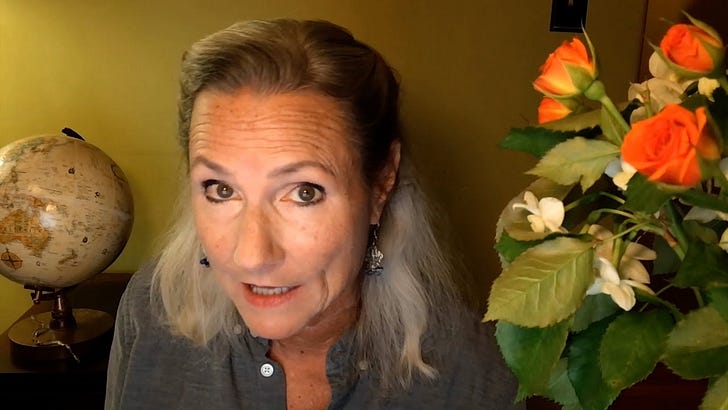




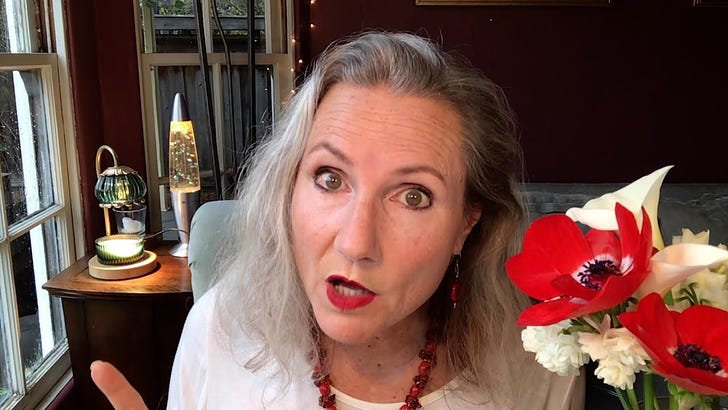

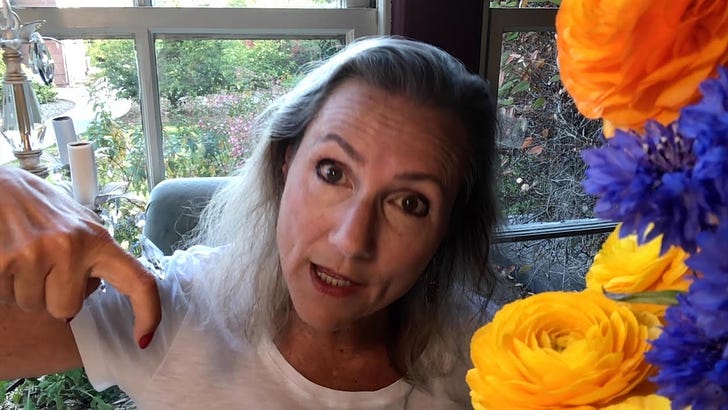
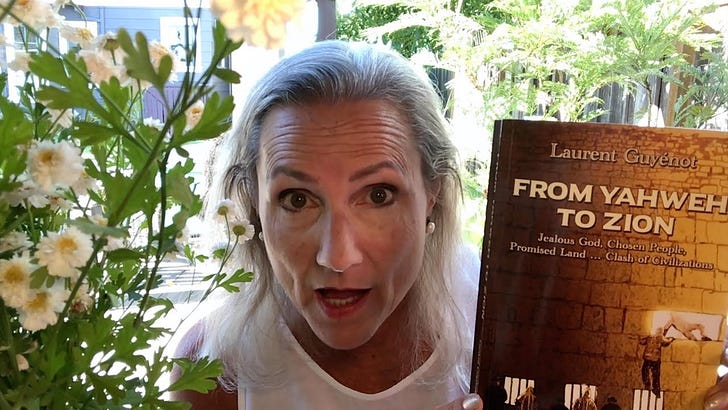
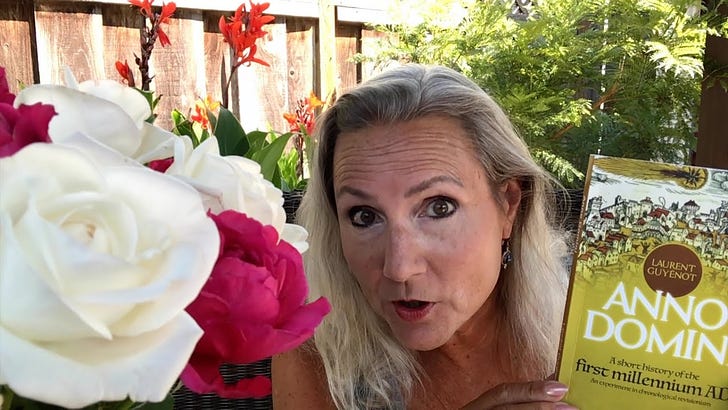
Excellent post, very revealing as to the patterns of Power, how it becomes used to "milk" the local culture, to create servitude. Through pattern recognition, this arrangement of control looks very much like what we see today in nearly every facet.
Of Genesis:
"14 And Joseph gathered all the money that was found in the land of Egypt, and the land of Chanaan, in return for the corn which they bought, and he distributed corn to them; and Joseph brought all the money into the house of Pharao.
15 And all the money failed out of the land of Egypt, and out of the land of Chanaan; and all the Egyptians came to Joseph, saying, Give us bread, and why do we die in thy presence? for our money is spent.
16 And Joseph said to them, Bring your cattle, and I will give you bread for your cattle, if your money is spent.
17 And they brought their cattle to Joseph; and Joseph gave them bread in return for their horses, and for their sheep, and for their oxen, and for their asses; and Joseph maintained them with bread for all their cattle in that year."
Create obligation (Taxes) out of creating dependence (Bread), while removing the instruments of Independence (Cattle and Sheep) with the existing system of kingship of Egypt. Using the Power of that kingship to sever the local farmers and tradesmen from their claim to their own Land and Homes. --- seems strikingly familiar to what we see today, throughout the Western "Democratic" Empire. Eminent Domain with split titles and Land Deeds.
Usurpation with Usury indeed. "Contractual Annexation Principle by another name."
Usury -- Today we pay interest on nearly everything, usury is at the center of Taxation.
Usurpation -- Trust is the First part of that, in both the Economic and Legal System, Trusts essentially represent an inversion of what "Trust" is supposed to be.
Also, the real Title of Kingship:
I am certain the term "Pharao" is refering to a "Big House" and not the true titular praenomen:
King of Egypt used as a King’s praenomen was: nijˈsiːwat biˈjaːtVj (reconstructed) IPA -- OR -- nɛsuːt biyātyi -- the way I have come to pronounce it: Neshua for practical use (English speaker)
Wiki on Pharaoh:
"From Ancient Greek Φαραώ (Pharaṓ), from Hebrew פַּרְעֹה (par'ōh), from Egyptian pr-ꜥꜣ (“palace, pharaoh”, literally “pr (“house”) + ꜥꜣ (“great, big”)”)."
I am certain this term was used or introduced by those who came from outside of Egypt, then later passed their ideas on to be perpetuated into the story inversion called the OT. The way the term Pharao is used in Genesis is almost like how we use the term "White House," here in the US; it's where the President lives but it's not his title. Pharao may really have been a late linguistic addition to the culture, possibly late New Kingdom.
This post helps to illustrate many of the complex details to be found in other writings that describe the events of the OT, such as Admonitions of Ipuwer. Thanks for sharing, Tereza.
Thank you for your diligent work. Their rôle seems identical to the one described in Solzhenitsyn's "200 Years Together" - a tax-collector class between peasants and their figure-head rulers. Who would expect people selling their independence for food in a time of famine? ;-P